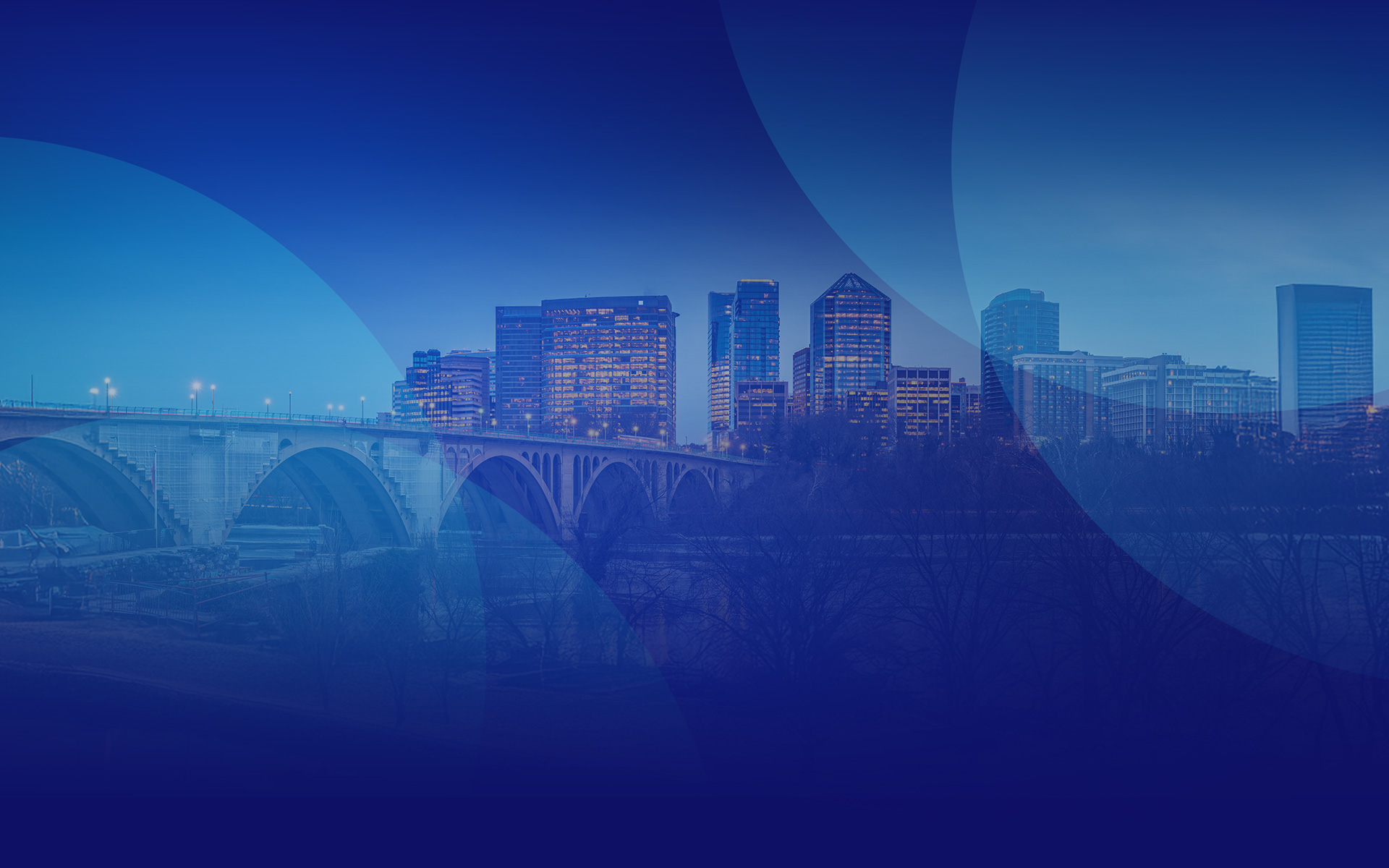Bankruptcy Attorney Washington, D.C. Services
Explore Your Debt Relief Options in Maryland and Washington, D.C.
Many circumstances can cause hard-working individuals to face financial hardship. Loss of employment, medical bills, or unexpected events can quickly make finances unmanageable. Our bankruptcy attorney at the Law Firm of Kevin D. Judd has over 25 years of legal experience and provides the judgment-free representation you need to rebuild your life. Our bankruptcy services in Washington, D.C., aim to eliminate or consolidate debt, stop foreclosure, and restore control over your financial future.
Living or working in Washington, D.C., gives you access to unique exemption laws that may let you keep more assets than in other states. Because we have deep local knowledge, we explain these protections and how the U.S. Bankruptcy Court for the District of Columbia manages cases. We help you understand filing timelines, property exemptions, and D.C.-specific court procedures when we guide you through your options.
Beyond helping you file, we offer ongoing support to rebuild your credit and teach financial skills that help you avoid future issues. Our bankruptcy attorney's comprehensive approach goes beyond current challenges and gives you the tools to achieve long-term financial stability.
Schedule a free initial consultation to learn more about whether bankruptcy may be right for you. Contact us online or call (202) 888-8454 to discuss your situation with our team.
Understanding Bankruptcy Fees & Costs in Washington, D.C.
Many clients want to know what expenses to expect when considering bankruptcy. The total cost of a bankruptcy case in Washington, D.C. typically includes court filing fees, required credit counseling, and legal representation. Fees for Chapter 7 and Chapter 13 filings may differ based on complexity and the number of creditors involved.
We outline every fee in detail before you hire us so that you have clear expectations and can plan your finances accordingly. Our firm commits to transparent, reasonable pricing and will walk you through how court costs and attorney fees fit within your larger financial plan. By working with a bankruptcy attorney who is familiar with D.C.-specific procedures and typical fee structures, you avoid unnecessary surprises throughout the process.

What Do I Need to Know about Filing for Bankruptcy in Washington, D.C.?
If you are unfamiliar with bankruptcy, you may have several important questions. What can bankruptcy accomplish? What is the difference between Chapter 7 and Chapter 13? How do you go about filing?
The bankruptcy court in Washington, D.C., operates downtown at the E. Barrett Prettyman Courthouse. Filing a case in D.C. involves federal requirements and unique local rules, such as district-specific exemptions covering which property you can keep. The District allows residents to choose between federal and local exemptions, a flexibility we use to your advantage based on your situation.
Understanding key details of bankruptcy matters when making a decision. You need to review specific eligibility rules and benefits of each bankruptcy type and know the long-term impact on your credit and financial future. Our firm values client education on both immediate outcomes and future opportunities, including how bankruptcy affects credit, travel, and employment.
We encourage you to review the following resources to learn more about bankruptcy and what it can do for you:
- Understanding Bankruptcy Options. Review your relief options and commonly used bankruptcy phrases.
- Eliminate Debt with Chapter 7 Bankruptcy. Chapter 7 bankruptcy eliminates all dischargeable debt, including credit card and medical debt. Non-exempt assets will be liquidated to partially compensate creditors, but you can use available exemptions to protect most or all of your property. Some debts, including student loan debt and missed child support payments, are not dischargeable.
- Reorganize Debt with Chapter 13 Bankruptcy. This type of reorganizational bankruptcy involves setting up a payment plan based on your projected future earnings. You will pay back a portion of your debts over three to five years. This form of relief can be a good choice for people who have reliable income but have fallen behind on payments.
- Stop Foreclosure with Bankruptcy. If you are in danger of losing your home to foreclosure, bankruptcy can stop the process.
- Strategies for Managing Consumer Debt. Find out what you can do to manage your debt and how to avoid dishonest “credit repair” services.
- Navigating the Bankruptcy Means Test. Learn how the bankruptcy means test works and why you need to use it if you want to file for bankruptcy.
- Bankruptcy Solutions for Student Loan Debt. If you are facing extreme financial hardship, bankruptcy may help you eliminate your student loan debt.
- Bankruptcy FAQs: Your Questions Answered. Get answers to common questions about bankruptcy laws and bankruptcy types.
How to Choose the Right Bankruptcy Attorney in Washington, D.C.
Finding the right legal guidance shapes the outcome of your bankruptcy case. When researching, look for a bankruptcy lawyer who knows the D.C. court system and regularly serves clients from across the District. Practical experience handling both Chapter 7 and Chapter 13 cases demonstrates commitment to full-service representation. Ask about the lawyer’s leadership roles in organizations and their knowledge of D.C. court preferences.
At Law Firm of Kevin D. Judd, we take time to understand your financial history and recommend a clear path, drawing on over 25 years serving residents throughout the city. Open communication is our priority, so we keep you informed throughout the process. Choosing a local bankruptcy attorney who values thorough preparation and honest answers gives you peace of mind moving forward.
Schedule a free initial consultation to learn more about whether bankruptcy may be right for you. Contact us online or call (202) 888-8454 to discuss your situation with our team.
Why Do Individuals & Businesses File for Bankruptcy?
Individuals and businesses file for bankruptcy for a variety of reasons. Here are some of the main reasons.
For Individuals:
- Overcoming overwhelming debt: High amounts of credit card debt, medical bills, or personal loans can become unmanageable, prompting people to seek bankruptcy protection.
- Navigating job loss or reduced income: Sudden unemployment or a major drop in income can make it hard to pay bills, leading individuals to consider bankruptcy.
- Medical expenses and bankruptcy: Large medical bills from illness, accidents, or ongoing treatments can push families or individuals toward bankruptcy as they struggle to cover costs.
- Financial strain from divorce or separation: Legal fees, child support, and alimony after divorce or separation can cause individuals to file for bankruptcy.
- Avoiding foreclosure or repossession: When someone faces losing their home or assets, bankruptcy may provide temporary relief and pause the process.
Many D.C. residents also turn to bankruptcy due to high housing costs or sudden changes in the local economy. The large number of federal jobs and contractors in D.C. means employment changes can quickly ripple through families and businesses. Addressing these local factors helps shape effective bankruptcy solutions for life in the city.
For Businesses:
- Addressing excessive business debt: Companies can struggle with significant debt from expenses, loans, leases, or unpaid invoices, which makes it tough to stay profitable.
- Adapting to declining sales or market changes: Reduced sales, changing markets, or tough competition may force businesses to consider bankruptcy.
- Legal or regulatory challenges and bankruptcy: Facing lawsuits, penalties, or stricter regulations can push a business toward bankruptcy.
- Resolving partnership dissolution through bankruptcy: Disputes among business partners or partnership breakdowns sometimes mean bankruptcy is the only way to resolve debts.
- Recovering from natural disasters or catastrophic events: Fires, floods, or other disasters that cause property damage and lost inventory may prompt businesses to seek bankruptcy protection.

Need legal solutions to overwhelming debt? Contact us at (202) 888-8454 to discuss your case and the options available. You can also schedule your consultation online.
FAQs About Bankruptcy in Washington, D.C.
What Types of Bankruptcies Are Most Common in Washington, D.C.?
In Washington, D.C., Chapter 7 and Chapter 13 bankruptcy filings are the most common for individuals and businesses. Chapter 7, called liquidation bankruptcy, appeals to those with few assets and unsecured debts such as credit cards and medical bills. Chapter 13, or reorganization bankruptcy, fits people with steady income who want to keep their home or vehicle. This process allows a structured plan to pay debts over three to five years. Our team at Law Firm of Kevin D. Judd helps you decide which bankruptcy fits your financial needs.
How Does Washington, D.C. Law Impact Bankruptcy Proceedings?
Washington, D.C. follows federal bankruptcy law but has local rules that may affect your case. Local regulations include exemptions that let you protect a certain amount of property during bankruptcy. For example, the D.C. homestead exemption can protect equity in your primary residence in a Chapter 7 case. Our legal team makes sure you follow both federal and local rules and helps safeguard your property.
What Is the Role of a Trustee in a Bankruptcy Case?
Trustees oversee bankruptcy cases as court appointees. In a Chapter 7 filing, a trustee reviews your assets, manages any sales required, and distributes proceeds to creditors. In Chapter 13, the trustee reviews and manages your repayment plan and ensures timely payments to creditors. Our team at Law Firm of Kevin D. Judd works with trustees and helps you meet all requirements for your case.
Can Bankruptcy Stop Debt Collection Harassment?
Filing for bankruptcy creates an automatic stay that halts most collection activities, including calls, wage garnishments, and foreclosures. This stay gives you relief from creditors as you reorganize or discharge debts. Some obligations, such as child support, may still be collected. At Law Firm of Kevin D. Judd, we help you understand your rights and work to enforce those protections.
What Are the Long-Term Effects of Bankruptcy on My Credit?
Bankruptcy affects your credit history but can also give you a fresh start. A Chapter 7 bankruptcy appears on your credit report for up to ten years and Chapter 13 for seven years. Many people find their credit begins to recover sooner, especially if they start paying bills on time and keep balances low. Law Firm of Kevin D. Judd guides you on steps to restore your financial health after bankruptcy, such as using secured cards and building a new track record of responsible payments.
Why Choose Our Bankruptcy Lawyers
Choosing Law Firm of Kevin D. Judd means having a partner in your financial journey. We offer transparent, honest guidance to help you tackle your unique challenges. Our firm helps you resolve your immediate legal issues and also helps you build lifelong skills for financial independence. Our commitment to legal service is reflected in the stories of clients we have helped regain financial control.
We draw on years of experience serving individuals and families throughout the District, which allows us to stay up to date on local court practices and legal changes that could affect bankruptcy. We pay close attention to how shifts in D.C. law, property values, and court schedules may change your case timing. We keep you updated at every step, working to protect your interests and ensuring you feel confident in your decisions.
Our bankruptcy services in Washington, D.C., include complete support at every step of the filing process. Give us a call at (202) 888-8454 or contact us online to get started.
-
Committed to the Community
-
Obtain A Fresh Start
-
Fair & Reasonable Rates
-
Over 25 Years of Service


Our goal is to help you find the relief you need from overwhelming debt. Reach out to us today for a free case evaluation.


